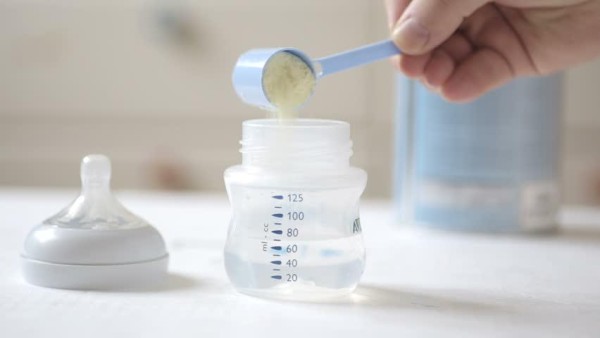On May 11, the House Committee on Oversight and Accountability Subcommittee on Health Care and Financial Services held its second legislative hearing entitled, “FDA Oversight Part II: Responsibility for the Infant Formula Shortage” to hear from Susan T. Mayne, the Director of the Center for Food Safety and Applied Nutrition at the FDA. This follows their March 28 hearing that included Frank Yiannas, the former FDA Deputy Commissioner for Food Policy, and Response, and Peter Lurie, the President & Executive Director of the Center for Science in the Public Interest, as witnesses. (More information on this first hearing can be found in NACCHO’s blog.)
During opening remarks, Chairwoman Lisa McClain (R-MI) emphasized the need to hold FDA leadership accountable for “their failure to prioritize food safety.” She continued by stating that, “the American people paid the FDA 6.7 billion dollars last year and the agency only inspected 3 out of 23 facilities, [now] the FDA is requesting over 10 percent more in next year’s budget, totaling 7.2 billion,” which she expressed concerns about. Chairwoman McClain stated the urgency to know where the funds are going to ensure the safety of all Americans.
Ranking member Katie Porter (D-CA) highlighted bipartisan concerns that an infant formula shortage could happen again, and the need for meaningful action. She also stated her opposition to proposed FDA cuts of 22%, which could make it harder for FDA to regulate the industry, and proposed “no cost” reforms that she hopes will get bipartisan support including having better processes for reporting and tracking contamination. She also stated that she is leading legislation to establish a process for the FDA to be notified when manufacturers critical food products test positive for foodborne pathogens.
In her testimony, Dr. Susan T. Mayne, the Director of the Center for Food Safety and Applied Nutrition at the FDA, assured the committee that FDA has applied many lessons learned from this incident. She stated that one of the most important lessons learned is that the agency must do all that it can to ensure that no infant formula facility ever has the level of insanitary conditions that were present at Abbott Sturgis in early 2022. Dr. Mayne emphasized that preventing another shortage in the future will require a continued whole of government approach, increased industry accountability and cooperation, and help from Congress. She continued by sharing FDA’s vision for a modern regulatory approach and the future of infant formula safety.
Dr. Mayne explained that manufacturers are responsible for producing safe products and to comply with FDA’s requirements and to adopt enhanced food safety measures. She also noted that market consolidation contributed to the significant shortages. She agreed that the FDA should be able to address product contamination in or near real-time and expressed that to do this the FDA needs Congress to grant them new authorities including explicit authority to require industries to notify them when formula tests positive for chronobacter, a bacteria that can cause severe illness in infants, even if the product has not left the facility, and the ability to obtain records remotely from all food manufacturers. Dr. Mayne stated that chronobacter infection should be a nationally notifiable disease so local, state, and federal public health partners can reliably collect information on all cases and rapidly link cases to potential sources of contamination. Finally, she highlighted the need for additional investments and updates to their Human Foods Program to meet current and future challenges. During questioning, Dr. Mayne noted that FDA plans to offer solutions to ensure better food safety in infant formula manufacturing and that FDA reporting and decision making needed to be streamlined.
Of note, last year’s Omnibus incorporated some new authorities for the FDA, but set the standard that requires manufacturers only to notify the FDA of any interruption that would likely lead to a meaningful disruption in infant formula supply. Dr. Mayne was also asked to describe what a 22% reduction in FDA’s appropriation would mean, which she said would lead to a loss of 32 percent of their domestic inspections and 22 percent of their foreign inspections
In closing remarks, Summer Lee (D-PA) highlighted the urgency to pass bipartisan legislation to create a process that makes FDA aware of bacterial contaminations in real-time, to be able to appropriately act on the contaminations immediately. She continues by stating that Congress needs to continue to work with the FDA, to enable the agency to do its job and to collect better data on chronobacter. Chairwoman McClain acknowledged that fault cannot be one-sided, but that FDA must first admit their role in the problem before the issue can be fixed.
